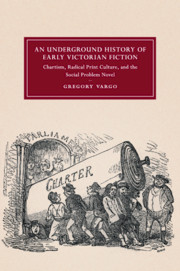Crossref Citations
This Book has been
cited by the following publications. This list is generated based on data provided by Crossref.
Garza, Ana Alicia
Burke, Lois
Dickinson, Christian
Williams, Helen
Barnes, Lucy
and
Baker, William
2019.
XIII The Victorian Period.
The Year's Work in English Studies,
Vol. 98,
Issue. 1,
p.
702.
2019.
The Divine in the Commonplace.
p.
298.
Breton, Rob
2019.
From Politics to Pope: An Account of the Group Aesthetic.
Humanities,
Vol. 8,
Issue. 1,
p.
32.
2019.
The Commodification of Identity in Victorian Narrative.
p.
280.
King, Amy M.
2019.
The Divine in the Commonplace.
Siegel, Jonah
2020.
Beauty.
Victorian Literature and Culture,
Vol. 48,
Issue. 4,
p.
745.
Robbins, Bruce
2020.
A Little Muzhik, Muttering to Himself.
boundary 2,
Vol. 47,
Issue. 2,
p.
71.
Sussman, Matthew
2021.
Stylistic Virtue and Victorian Fiction.
2021.
Decadent Ecology in British Literature and Art, 1860–1910.
p.
261.
2021.
Stylistic Virtue and Victorian Fiction.
p.
260.
2021.
Convalescence in the Nineteenth-Century Novel.
p.
228.
2022.
Visual Culture and Arctic Voyages.
p.
269.
2022.
Music and the Queer Body in English Literature at the Fin de Siècle.
p.
278.



